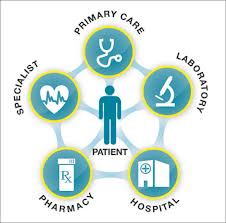Readmissions have become a focal point over the last couple of years, especially for CMS. Reducing readmissions is one of the most important goals of doctors and healthcare organizations, alike. The costs have risen to the point of assessing penalties to hospitals whose readmission rates are above the expected and/or standard. Penalties are currently 1% of Medicare and slated to rise to 3% and beyond over the next couple of years. The readmission issue goes beyond the cost aspect and more importantly places emphasis and accountability on quality of care. In response to the readmission issue, there are several things that can be done to reduce readmissions and improve the quality of care. 
Education is the starting point prior to discharge. The patient must be provided with the information they need to successfully discharge either to their homes or to another facility. Information should include instructions for care after leaving the hospital, instructions for any prescribed medications, symptoms to look for which might require follow-up, who to contact with questions, and when to schedule follow-up care. Some hospitals are going so far as to schedule the appointment with the patient’s primary care physician or other caregiver to ensure the appointments are attended. Giving the patient instructions is part of the education piece but, more importantly, receiving confirmation the patient understands the instructions and can verbalize his/her expectations.
Initial follow-up is key to the success of reducing readmissions. A patient tends to be more compliant when they know someone is checking up on them. Some of the follow-up initiatives include: sending a nurse or other caregiver to the  patient’s home or facility in which they were discharged, assessing how well the patient is recuperating, identifying any complications, assessing how well medications are being taken and if there are any reactions, and ensuring the patient is seen post-discharge by their physician or other caregiver. In certain circumstances, the caregiver who is following up may even provide transportation to and from the follow-up visit to ensure appointments are kept and to receive instructions/updates on status from the physician.
patient’s home or facility in which they were discharged, assessing how well the patient is recuperating, identifying any complications, assessing how well medications are being taken and if there are any reactions, and ensuring the patient is seen post-discharge by their physician or other caregiver. In certain circumstances, the caregiver who is following up may even provide transportation to and from the follow-up visit to ensure appointments are kept and to receive instructions/updates on status from the physician. 
Regular contact is key as well. While the initial follow-up is extremely important, so is regular contact for the next few days to the next few weeks. Generally this would occur daily. If the patient knows that someone is going to check on them every day, they are more likely to be compliant and follow their discharge instructions. It comes down to accountability. There are those who can be accountable on their own while others need a bit more prodding and follow-up.
Pharmacies have become part of the transition of care team as well. Hospitals form relationships with pharmacies or have pharmacies on site. Pharmacists can help with the education process upon discharge as well as the follow-up once the discharge has taken place. Sometimes patients feel more comfortable asking a pharmacist medication questions than their own physician. Additionally, the pharmacist is equipped to know how the prescribed medications may interact with other medications taken. This level of expertise adds significantly to the trust the patient feels towards the process and toward their expectations.
pharmacist medication questions than their own physician. Additionally, the pharmacist is equipped to know how the prescribed medications may interact with other medications taken. This level of expertise adds significantly to the trust the patient feels towards the process and toward their expectations.
Care Coordination is key to the successful transition of care from hospital to post-hospital setting. Care coordination begins at the hospital with a combination of hospital staff and primary care or other appropriate staff. Some of the typical roles for transition of care include care managers, RNs, and social workers. The key is to provide consistency of care from the education  provided at discharge to the follow-up after discharge. A consistent message as to medication management and expectations should be applied across the board. It is important to make sure the patient not only receives but understands all of the discharge instructions. Once discharged, the follow through must also provide a consistent message. This provides a feeling of trust and loyalty within the patient which in turn encourages the patient to follow their instructions and comply with all expectations. Care coordination also gives the patient the opportunity to have a contact person in which they can ask questions rather than immediately turning to the Emergency Room and becoming a readmission.
provided at discharge to the follow-up after discharge. A consistent message as to medication management and expectations should be applied across the board. It is important to make sure the patient not only receives but understands all of the discharge instructions. Once discharged, the follow through must also provide a consistent message. This provides a feeling of trust and loyalty within the patient which in turn encourages the patient to follow their instructions and comply with all expectations. Care coordination also gives the patient the opportunity to have a contact person in which they can ask questions rather than immediately turning to the Emergency Room and becoming a readmission.
Primary Care can greatly assist in reducing readmissions. Many hospitals are including the physician from the time they are admitted or seen in the Emergency Room. Status updates are provided through the time of discharge. Many hospitals are now making appointments with primary care physicians within 72 hours of discharge. This removes one more obstacle for the patient. Additionally, the primary care physician can ensure a smooth transition of care. Involving primary care from the beginning ensures consistency and enables much better follow-up in those hours/days immediately following discharge.
72 hours of discharge. This removes one more obstacle for the patient. Additionally, the primary care physician can ensure a smooth transition of care. Involving primary care from the beginning ensures consistency and enables much better follow-up in those hours/days immediately following discharge.
Community resources should be included in the transition of care team. These include facilities such as nursing homes, skilled nursing facilities, hospice, rehabilitation centers, and behavioral health. Community resources round out the transition of care team.
While hospitals are the facilities which are currently receiving penalties for high readmission rates, readmissions are the responsibility of primary care, care coordinators, pharmacists, and community resources. Collaborating care is the key to providing quality of care which in turn will reduce readmission rates and the costs associated.
If you need assistance in reducing your readmissions, please contact BHM Healthcare Solutions for your complimentary consultation. Our readmission experts can help you reduce your readmission rates. 1-888-831-1171 or results@bhmpc.com.
About BHM Healthcare Solutions – www.bhmpc.com
BHM is a healthcare management consulting firm whose specialty is optimizing profitability while improving care in a variety of health care settings. BHM has worked both nationally and internationally with managed care organizations, providers, hospitals, and insurers. In addition to this BHM offers a wide breadth of services ranging including managed care consulting, strategic planning and organizational analysis, accreditation consulting, healthcare financial analysis, physician advisor/peer review, and organizational development.
.






Good tips! RT @NTOCC: Reducing #readmissions through collaborative efforts http://t.co/NDfsc7lHp0